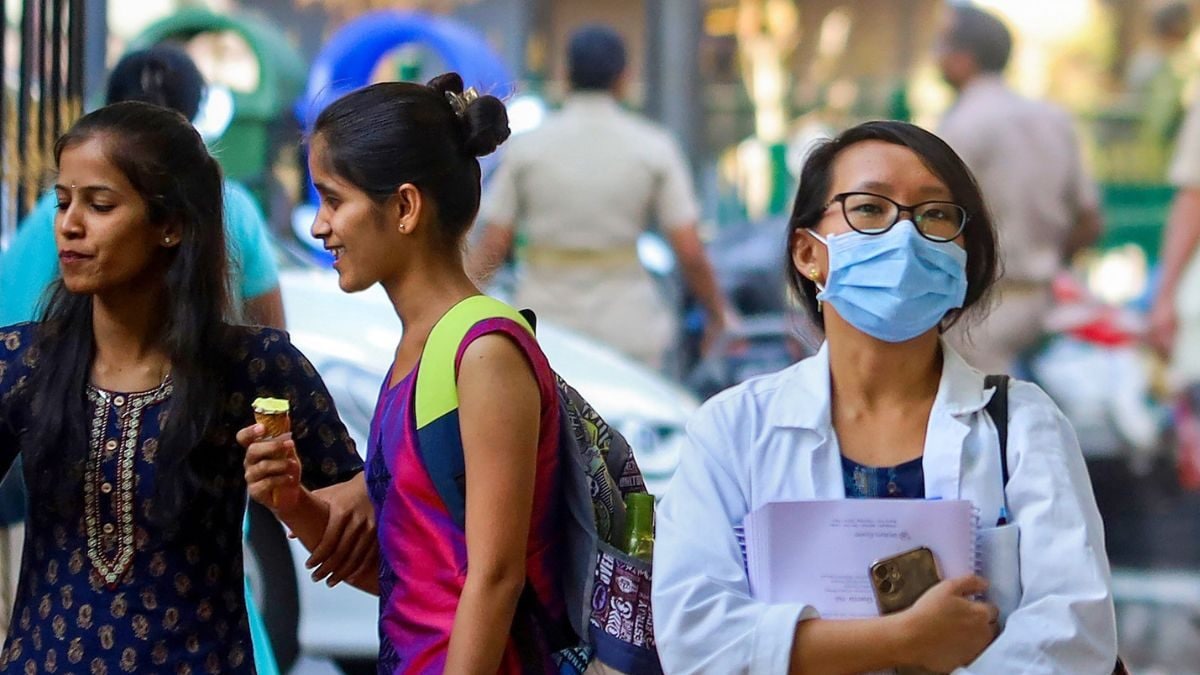Medical teachers should constantly demonstrate to students correct elements of the doctor-patient relationship, including soft skills of communication and respect for the dignity and rights of patients, according to guidelines issued by the National Medical Commission (NMC) on Monday.
Stating that bedside teaching is an integral part of the education and training of medical students, the guidelines said that teachers must ensure that students are sensitive to the patients’ suffering and gentle during physical examination and do not see patients as a means to an end in medical teaching.
Teachers should model and impart soft skills and counselling skills to enable students to learn empathic communication skills and managing sensitive situations like breaking the news of death, according to the guidelines on ”professional responsibilities of medical teachers” issued by Dr Yogender Malik, member of the NMC’s Ethics and Medical Registration Board (EMRB).
Teachers must teach the students to conduct bedside discussions in a sensitive manner that respects the dignity and rights of patients, and should emphasize the immense importance of correct and complete documentation to the students.
Teaching bedside clinical skills may be more useful in community settings so as to ensure early detection of diseases and their cost-effective management, the guidelines said.
It highlighted that teachers must be aware that they are the role models for students and are closely observed, analysed regarding their commitment, behaviour, knowledge and competence by the students who then choose to emulate them or dismiss what they see as undesirable traits.
In this context, teachers may thus be positive or negative role models. So, teachers should demonstrate their own commitment and devotion to lifelong learning by constantly updating their own knowledge and skills, demonstrate empathy and compassion in their demeanour and dedication to welfare of patients, nursing staff and colleagues and maintain professionalism at all times during their interactions.
They must ensure that their behaviour and actions are ethical and inspiring at all times, and they fulfil their duties with utmost integrity and that they dress formally, modestly and neatly at the workplace.
The guidelines underlined that disciplinary action should be undertaken on a one-to-one basis and that teachers should avoid humiliating students in front of their peers or in public.
They must be unbiased and fair in their interactions with students and should not discriminate on the basis of region, religion, caste, gender, sexual orientation, language, socio-economic class, or any other factor.
According to the guidelines, teachers must be aware of the stress and mental health problems that students face and should be aware of the processes available in their institutions to address these issues.
Teachers must be aware that they teach a diverse student population. Measures should be taken to the best of their abilities to address the additional needs of high performers as well as needs of those students who may be finding difficulties with the course.
”Teachers must follow the conduct regulations with respect to their interactions with the pharmaceutical companies/their representatives as well as allied health sector. Teachers should ensure that a student is exposed to appropriate mix of common patient situations existing in community and withhold themselves from discussing rare situations only. Teachers must highlight the concept of ’family physician’ in the care of the patients,” the guidelines stated.
Teachers should make students aware of the medico-legal aspects of patient care, the guidelines said.
According to the guidelines, teachers should continually review, revise and update their teaching-learning materials to reflect advances and current understandings in their field and use wherever appropriate, newer available teaching-learning resources such as computer-aided learning strategies.
”Teachers must not plagiarise their teaching materials and should provide sources of their information wherever appropriate,” it stated.
The guidelines stated that the role of the teacher while certifying a student is very crucial, therefore one must ensure 360-degree evaluation of students.
The examination must go beyond the final summative assessment and should include regular formative assessments with more emphasis on the latter.
Teachers must set assessments and examination papers keeping in mind the blueprints for examinations to achieve the purposeful goal of the curriculum as per CBME. They must ensure that question papers are kept confidential and that teaching is holistic and not only examination-centric, the guidelines said.
Read all the Latest Education News here
(This story has not been edited by News18 staff and is published from a syndicated news agency feed)




